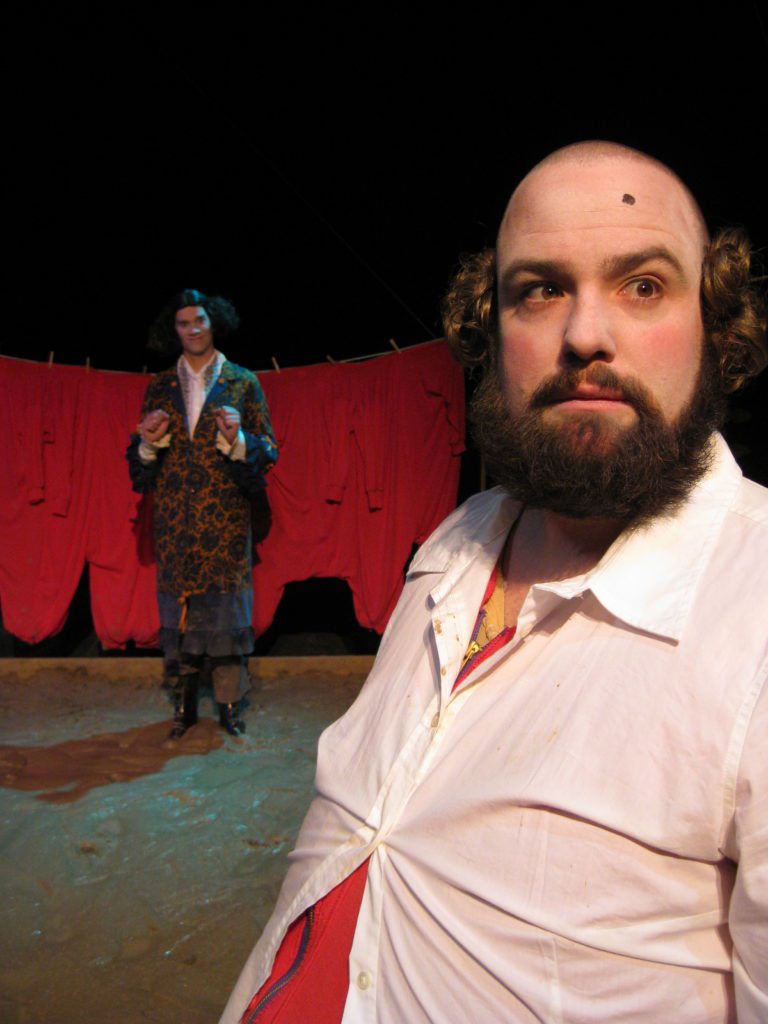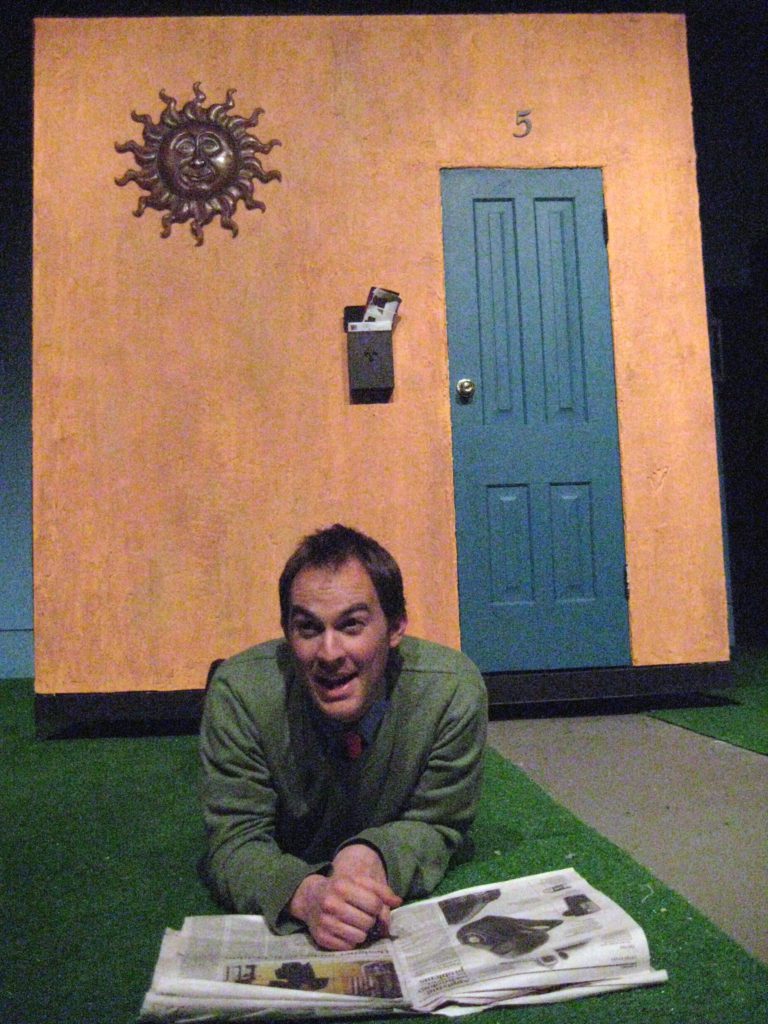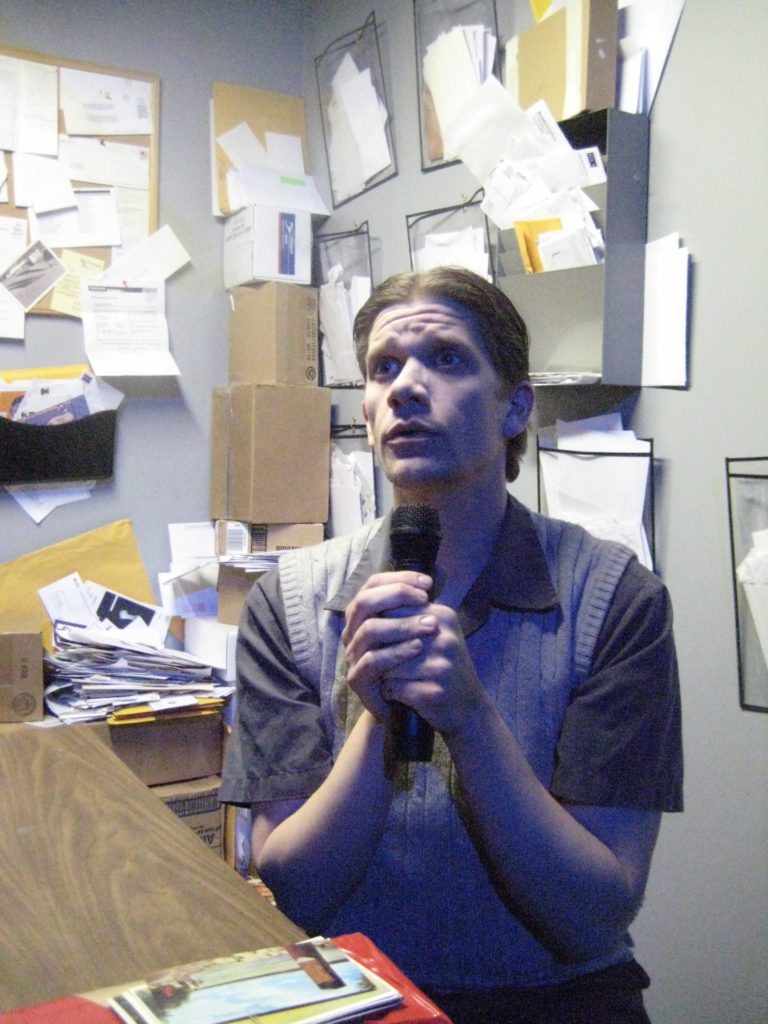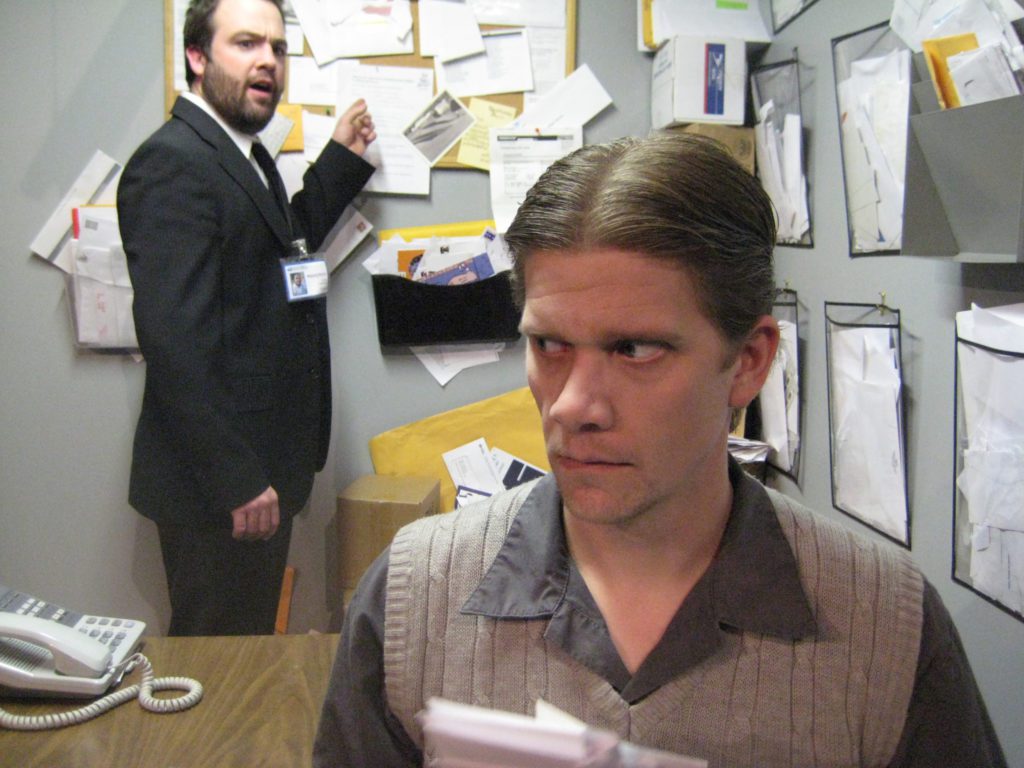Finding the humor in such behavior comes naturally to Russia’s impressive stable of scribes, but its basis is not always apparent to outsiders, as we so often see in angst-ridden, hand-wringing productions of Chekhov. But the creative font of theatrical talent that calls itself Buntport Theatre has no such difficulties in mining the comic and, at times, absurd from the Nikolai Gogol tale they have adapted into a barnyard allegory.The Russian temperament is as enigmatic as the country from which it arises, an unpredictable roller coaster of joy and melancholy, charity and self-interest, that somehow provides the temerity to see its hardy stock through the harshest winters with a ferocity that is willing ultimately to destroy its own resources to outlast the likes of Napoleon and Hitler.
Smack dab in the middle of the company’s flexible space sits approximately 500 square feet of mud held in check by a sturdy frame of two-by-eights – within which most of the action takes place, with the actors wearing rubber boots to navigate the slop – which along with clotheslines and picket fences that demarcate settings, serves as two abodes, surrounding yards, a courtroom, and the town square.
“Wallowing in the mire” and “airing dirty laundry” are two metaphors that come to literal fruition as the plot unfolds: two good friends start feuding for the slimmest of reasons and refuse to forgive each other, even as death approaches.
As always, the company’s characterizations are a hoot, beginning with the main adversaries: Erik Edborg as the well-mannered but easily offended, willowy Bob Boxinoxingworth and Brian Colonna as the ill-bred and blunt, torpid Bob Luggalollinstop. The intriguing question of how these fellows ever got to be friends in the first place is quickly marginalized as we watch Bob B and Bob L project their worst fears on each other.
The Bobs are enabled in their maledictions and reprehensible behavior by Wanda Wickerstickly, a delightfully eccentric and abrasive Erin Rollman, who encourages Bob L and infuriates Bob B. Rollman then turns state’s witness, reappearing as Peter Apropopanoosh, who along with Hannah Duggan’s equitable Alfred Fredfredfredful, the local judge and owner of the town’s largest house, attempt to leverage the law to ameliorate the situation.
Duggan’s alter ego, the delightful simpleton Tony Tumblestumpington, is the harmless, homeless flip side of the judge, who spreads her requests for evening shelter relatively equally between the Bobs. Evan Weissman, as Pig and as One-eyed Bob B stands inside and outside the story, mocking the sad state of affairs to which he is both a partner and an observer.
In the program, the company notes that Gogol’s unique blend of humor and fun resonates with their own work, which is certainly evident in the production. There is one other striking similarity to many of Buntport’s dramas or allegories: the lack of catharsis. In comedy, a series of good laughs is sufficient to provide a transformational catalyst, but The Squabble is not a comedy in structure or tone. It could be argued that this was Gogel’s intention – to let the unresolved issues fester without tragedy or redemption – and perhaps the Russian temperament finds succor in such a point-of-view, but this side of the Cyrillic alphabet, an emotional Rosetta stone is required.
-Bob Bows, May 22, 2009, ColoradoDrama.com






